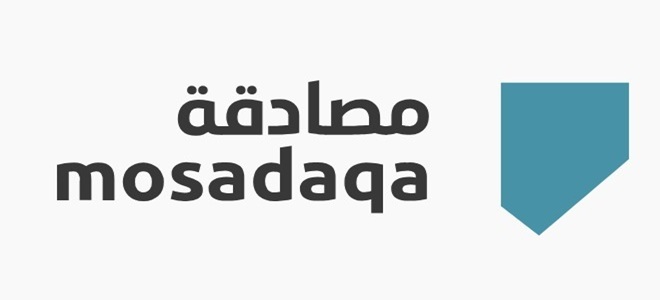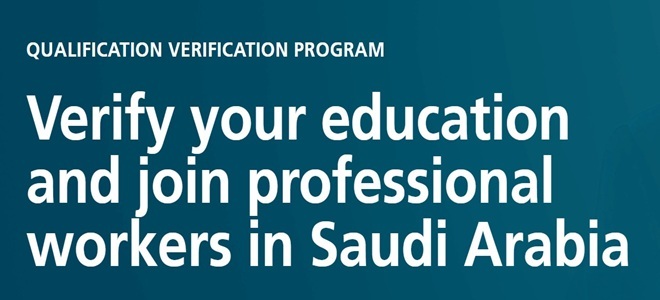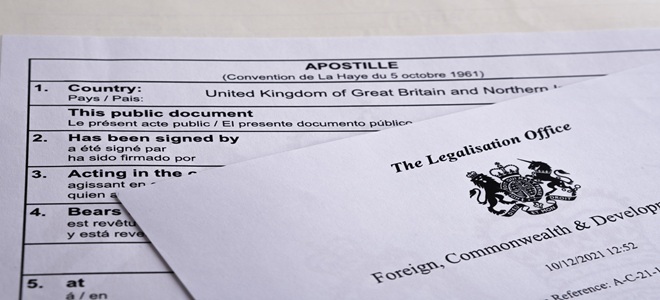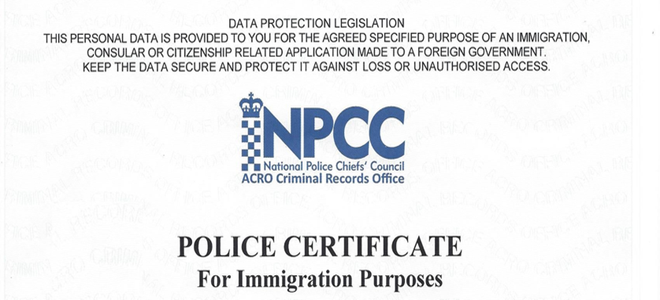A Saudi work visa is a type of employment visa issued to foreign nationals who have secured a job offer from a company in Saudi Arabia. It allows the holder to legally reside and work in the Kingdom for the duration of their employment contract. The visa requires sponsorship from a Saudi employer and involves medical checks, document attestation, and government approvals. This visa is essential for professionals planning long-term work in Saudi Arabia.
This comes from the sponsoring company
This links the visa to applicant's name
This needs to be attested by Saudi MOFA
This needs to be attested by Apostille, QVP and Mosadaqa
This needs to be from from one the approved clinics and attested by apostille
This needs to be issued by ACRO and attested by apostille

What is Mosadaqa Saudi?
Mosadaqa Saudi is the official attestation and legalization service managed by the Ministry of Foreign Affairs (MOFA) in Saudi Arabia. It enables individuals, companies, and foreign entities to validate documents for legal use within the Kingdom. Whether for employment, education, immigration, or commercial purposes, Mosadaqa ensures the authenticity of documents issued inside or outside Saudi Arabia. The system acts as a trusted bridge between issuing authorities and end users, reducing fraud and increasing trust in submitted records. From academic degrees to corporate papers, all documents processed through Mosadaqa carry legal weight and government endorsement.
Why is Mosadaqa needed?
Attestation through Mosadaqa is a legal requirement for many formal procedures in Saudi Arabia. For example, if a foreign national wants to work in Saudi Arabia, their academic and professional documents must be attested through this channel. Likewise, companies expanding operations in the Kingdom must verify incorporation documents. Without this attestation, ministries, consulates, and government portals will not accept or process the paperwork. Mosadaqa protects against forgery and ensures that all credentials meet Saudi regulatory standards, helping institutions make decisions based on verified facts.
What are the requirements?
To complete Mosadaqa, applicants typically need the original document, a certified translation if the document is not in Arabic, and prior attestation by relevant authorities (such as a Ministry of Education or Chamber of Commerce). For foreign documents, prior legalization from the issuing country’s foreign office and Saudi embassy is required before submission to MOFA. Payment of service fees is made via the MOFA portal or approved service centers. In some cases, medical or police clearance reports must also be verified depending on the visa or use case.
Additional Information
Processing times vary depending on the type of document and its origin, but most in-Kingdom attestations are completed within a few working days. Applicants are advised to ensure all steps are followed accurately to avoid rejections or delays. Mosadaqa plays a central role in aligning individual and corporate records with Saudi laws and ensures smooth transitions for employment, education, business, or family residency.

What is QVP?
The Qualification Visa Pre-approval (QVP) is a preliminary step in Saudi Arabia’s work visa process, required before a block visa can be issued by the Ministry of Human Resources and Social Development (MHRSD). It verifies that a foreign candidate’s job title, nationality, and qualifications align with Saudi labor regulations and Saudization policies. QVP approval ensures that the intended employment meets specific criteria and allows the employer to proceed with securing a block visa. It is an essential compliance measure to regulate labor market entry and maintain quality and balance in employment practices. QVP is not a visa itself but a pre-approval, and must be obtained before applying for the actual work visa. The process involves uploading necessary documents such as the employment contract, academic certificates, and passport copy for validation.
Why is QVP needed?
QVP is mandatory for employers in Saudi Arabia who wish to sponsor foreign nationals for work. It acts as a filter, helping authorities assess the relevance and authenticity of a candidate’s profile before a work visa quota is allocated. Without a QVP, no block visa can be issued, and the entire hiring process halts. It helps ensure that only qualified, appropriately matched candidates are invited to work in the Kingdom, supporting national goals for workforce development. The QVP system also prevents misuse of visas by requiring job-specific documentation and justification from the employer, making the entire employment process more transparent and accountable.
What are the requirements?
To file for QVP, employers must submit a signed employment contract with a defined job title, copies of the candidate’s academic qualifications (attested by relevant authorities), a valid passport, and occasionally, professional licenses depending on the occupation. These documents are uploaded to the Qiwa or Mudad platform for review. The employer must also have a valid company profile and appropriate business activity license to match the job category. All submissions must be in line with Saudization ratios and Nitaqat classification. Processing typically takes a few working days, but may vary based on the job category and the completeness of the documentation.
Additional Notes
It’s important to ensure the job title used in QVP matches the title used later in the visa application and the work contract, as discrepancies can lead to delays or rejections. QVP is a one-time approval for each unique job title and nationality combination and must be renewed or re-applied for new candidates under different criteria. This step is vital in securing a smooth transition from job offer to legal employment status in Saudi Arabia.

What is the Apostille process in the UK?
The Apostille process in the United Kingdom is a method of certifying a document for international use under the Hague Convention of 1961. It confirms that a UK public document is genuine and can be accepted in another member country without the need for further legalization. Issued by the UK Foreign, Commonwealth & Development Office (FCDO), an Apostille is a stamped certificate attached to the original document or its notarized copy. It is commonly required for documents such as birth certificates, academic transcripts, powers of attorney, corporate papers, and court orders when used overseas. Once issued, the Apostille proves the document’s authenticity and its acceptance in countries that are signatories to the Hague Convention. The process ensures the document’s origin, signature, and seal are officially verified.
Why is the Apostille needed?
An Apostille is often required when presenting UK-issued documents abroad for legal, educational, or commercial purposes. Whether applying for a visa, establishing a company, marrying overseas, or working abroad, foreign authorities typically demand proof that UK documents are legitimate. Without the Apostille, the receiving country may reject the document or require lengthy additional legalization steps. By standardizing international document recognition, the Apostille simplifies cross-border transactions, saving time and reducing the need for embassy visits. It is essential for global mobility, legal compliance, and establishing trust in international dealings.
What are the requirements?
To obtain an Apostille in the UK, the document must be either an original UK public document or a notarized copy certified by a UK solicitor or notary public. Some documents, like academic certificates or commercial invoices, may first need to be certified before submission. Applications can be made online via the FCDO’s official legalization portal or by post. The applicant must provide the document, a completed application form, and payment of the required fee. Standard service typically takes a few business days, while premium same-day or next-day options are available at a higher cost. The Apostille certificate is then attached to the document and returned to the applicant.
Additional Notes
Only documents issued or executed in the UK are eligible for Apostille through the FCDO. If the document originates from another country, it must be legalized in its country of origin. It is important to check whether the destination country accepts Apostilled documents or requires further steps. The Apostille certificate does not legalize the content of the document—it only verifies the authenticity of the signatures and seals. Applicants should ensure that all documents are complete and correct before submitting, as errors may lead to rejection or delays in processing.

What is an ACRO Police Certificate?
An ACRO Police Certificate is an official document issued by the UK’s Criminal Records Office (ACRO) that provides a record of a person’s criminal convictions, if any, or confirms the absence of such. This certificate is often required as part of the visa application process for various countries, including Saudi Arabia, especially for long-term work visas, residency, or family sponsorship. It helps Saudi authorities verify that the applicant does not have a criminal background that would prevent them from entering or working in the Kingdom. The certificate includes information held on the Police National Computer (PNC) and is issued specifically for visa or immigration purposes, not for employment within the UK.
Why is ACRO clearance needed for a Saudi visa?
Saudi Arabian visa regulations often require a police clearance certificate as part of the background check for individuals applying for employment visas, particularly in sectors such as healthcare, education, or security. The Kingdom requires assurance that the applicant poses no threat to public safety or national security. The ACRO certificate serves as a credible and official verification of the applicant’s record from UK authorities. It is particularly requested during the block visa approval stage or when submitting documents to the Saudi Cultural Bureau or the Ministry of Foreign Affairs. Without this clearance, visa applications can be delayed or rejected, especially if the role involves direct engagement with the public or vulnerable individuals.
What are the requirements to obtain it?
To apply for an ACRO Police Certificate, the applicant must submit:
A valid passport or UK driving licence
Proof of address (e.g. utility bill or bank statement)
Recent passport-size photograph
Completed application form
Payment of the processing fee (standard or premium service)
Applications can be submitted online through the official ACRO website. The standard processing time is usually 12–14 working days, while a premium service (2 working days) is available at an additional cost. Once issued, the certificate is usually valid for 6 months from the date of issue, though some authorities may accept it up to 12 months.
Additional Notes
The ACRO Police Certificate must be used solely for the purpose stated in the application—namely visa or immigration to Saudi Arabia. If required by the Saudi embassy, the document may also need to be legalized (apostilled) by the UK Foreign, Commonwealth & Development Office (FCDO), and then further attested by the Saudi Embassy in London. Applicants should ensure they enter their details correctly and provide all required supporting documents to avoid delays. Early preparation of the police certificate is recommended, as it can become a bottleneck in the visa approval timeline.

What is the medical examination for a Saudi visa?
The medical examination is a mandatory step for individuals applying for a work visa or a family residence (Iqama) visa for Saudi Arabia. It is designed to ensure that the applicant is medically fit and free from communicable diseases before entering the Kingdom. The medical test includes a physical check-up, blood tests, chest X-ray, and screening for infectious diseases such as HIV, Hepatitis B and C, tuberculosis (TB), syphilis, and other conditions outlined by the Saudi Ministry of Health. This process is conducted at approved GAMCA (now WAFID)-certified clinics or Saudi embassy-approved medical centres in the UK. The results must confirm the applicant’s fitness for travel and residence in Saudi Arabia.
Why is the medical test needed for Saudi visas?
Saudi Arabia enforces strict public health standards and aims to prevent the spread of infectious diseases. A clear medical report is a key requirement before the issuance of a work visa or a residency visa for dependents. Employers and sponsors must submit a valid, clean medical report as part of the visa application file. Without this, the embassy will not stamp the visa on the passport. For family visa applicants, the medical test—especially for spouses—is essential to secure long-term residency (Iqama) once in the Kingdom. The medical ensures that all entrants are physically able to stay in Saudi Arabia without posing a risk to the local population or healthcare system.
What are the requirements for the medical?
Applicants must attend the medical at an approved clinic and typically provide:
Original valid passport
2 passport-sized photos
Visa authorization number or referral slip (Yellow Slip)
Completed application form from the clinic
Payment of medical fees (varies by centre)
The test includes a blood screening, chest X-ray, urine test, and physical exam. Women may also be asked to take a pregnancy test. Some roles (e.g. healthcare professionals) may require additional tests or vaccinations. The results are usually available within 3–5 working days and are sent directly to the Saudi Embassy or via WAFID’s electronic system. If the applicant is found unfit or has a disqualifying condition, the visa application will be rejected.
Additional Notes
Medical reports are typically valid for 3 months from the date of issue. It’s important to schedule the medical after receiving the visa referral slip but before submitting the visa application. The Saudi Embassy only accepts reports from authorized centres, so visiting a non-approved GP or private clinic will not be sufficient. In the UK, there are several embassy-approved clinics across major cities like London, Manchester, and Birmingham. It is advisable to keep copies of all documents and receipts for your records.

What is a Saudi Business Visa?
A Saudi Business Visa is a short-term, non-resident visa issued to individuals traveling to Saudi Arabia for commercial or professional purposes without engaging in direct employment. It allows foreign nationals to attend meetings, conferences, business negotiations, exhibitions, or site visits in partnership with Saudi-registered entities. Business visas are typically valid for single or multiple entries, with stay durations ranging from 30 to 90 days per visit, depending on the invitation and visa type. The visa is issued based on an invitation letter (LOI) from a Saudi company, approved by the Ministry of Foreign Affairs (MOFA). It is a preferred choice for business professionals, consultants, and company representatives who need to conduct activities in the Kingdom on a temporary basis.
Why is the business visa needed?
The Saudi Business Visa enables international businesses to connect with counterparts in Saudi Arabia without the need for a work permit or long-term sponsorship. It facilitates economic cooperation, project assessment, and strategic planning between foreign companies and Saudi stakeholders. As the Kingdom opens its economy under Vision 2030, the business visa streamlines entry for global investors, technical experts, and executives. It is essential for short-term assignments, feasibility studies, and initiating partnerships. Without this visa, foreign nationals are not legally allowed to enter the Kingdom for commercial engagements, and entering on a tourist visa for business purposes may result in penalties.
What are the requirements for the Saudi Business Visa?
To apply for a Saudi Business Visa, the following are typically required:
A valid passport (minimum 6 months validity)
A letter of invitation (LOI) from a Saudi company, approved by MOFA
Passport-size photo (white background)
Completed visa application form
UK company support letter stating the purpose of travel
Proof of business registration (for the inviting and visiting companies)
Visa fee payment (varies depending on single or multiple entry)
Travel insurance as required by the consulate
Applicants can apply through a Saudi Visa Centre, authorized agents, or consulate, and processing usually takes 2 to 5 working days once all documents are complete. In some cases, biometric enrollment may be required.
Additional Notes
Business visa holders are strictly prohibited from engaging in paid employment or long-term assignments in Saudi Arabia. Violations may lead to fines, deportation, or bans. It is important to ensure that the job title, activities, and purpose listed in the invitation letter match the actual visit. Some nationalities may face additional requirements, and each consulate may have specific procedures. Companies should coordinate with their Saudi counterparts to ensure the invitation is correctly issued and reflects the intended business purpose. The business visa is a key tool for fostering international collaboration with the Kingdom and should be used responsibly to maintain compliance.
We’ll get back to you within five hours of receiving your email.